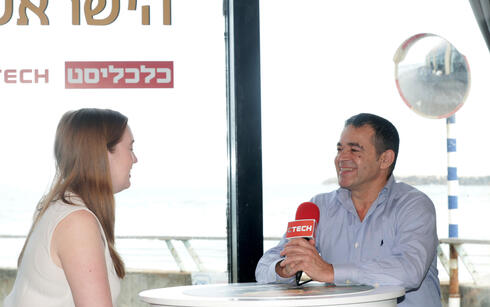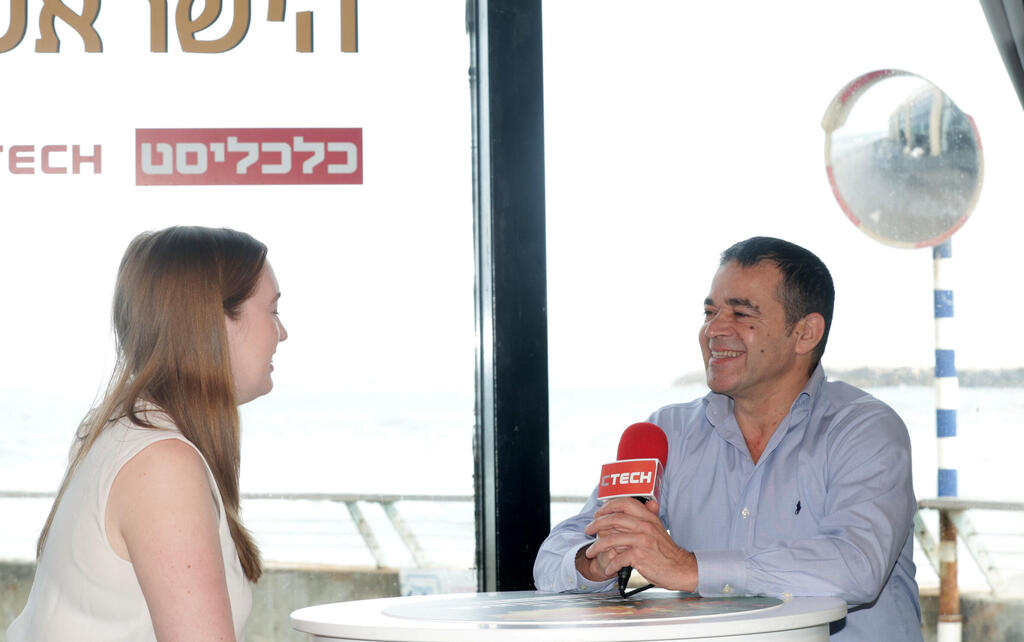
CEO of Israel’s national water company on the impact of war and climate change
Amit Lang, the CEO of Mekorot, Israel’s national water company, spoke to CTech at Calcalist's Israeli Resilience Conference last week about innovation and challenges regarding their activities during these times
"From October 7th, we’ve been in an emergency situation. We have a protocol for extreme scenarios that covers every possible situation, including war scenarios and climate situations," said Amit Lang, CEO of Mekorot, in an interview with CTech at Calcalist and Phoenix’s Israeli Resilience Conference. "We're used to extreme situations and we have invested in preparations for challenges to the water supply system. It doesn't necessarily have to be just a war; there are also extreme climate situations that can limit the supply of electricity, which can affect the water supply, or storms at sea which impact desalination capabilities. In this aspect, we're among the best in the world, and we've been in a state of preparedness for half a year. Despite the challenging reality, I am proud to say that so far there has been no harm to the water supply."
How did October 7 affect you as a company?
"We have a comprehensive system designed for extreme situations. Already on the morning of October 7, we were assessing the situation. We have a unique emergency approach, and we've been in action mode since then with daily situational assessments. It was quickly understood that we had to respond to our employees - some were evacuated, some were called up for reserve duty, some had transportation difficulties. We also have employees who were affected and lost loved ones, so we activated a welfare system for our employees. We provided a response to each employee, thus preserving the company's resilience."
Google has said that it's considering offering your technology on Google Marketplace. Can you speak to this and Mekorot’s other innovation activities?
"Mekorot operates extensively in innovation. We already have close to ten companies in which we’ve invested, and we're also developing cutting-edge technology. These paths have proven themselves, and Mekorot is undergoing digital transformation. We've been working with AI for years and we have algorithms that operate in this area because we're large energy consumers. Depending on our needs, we can plan consumer consumption precisely, both by seasons and by daily and weekly demand. We have excellent control rooms; we know how to manage multiple water sources from the same system, such as treated water and from the Sea of Galilee. The collaboration with Google may lead to the implementation of systems developed by Mekorot also in other infrastructure sectors.”
How does climate change affect you?
"It manifests in extreme events: heatwaves, cold spells, storms, prolonged droughts, which mainly affect the electricity grid, and we need electricity to transport water. It's a challenge we're addressing, and we're creating numerous backups for the system and finding independent energy solutions for the company. We're also constantly working on system redundancies. That is, even if facilities in a certain area are down, we know how to transfer water from other areas. We're strengthening our ability to be self-reliant all the time because we understand that extreme situations will continue to challenge us."
Now it's time to rehabilitate the south and the north - what are the challenges?
"We need to connect the most remote areas to the national water network. Not all residential areas in Israel are connected to the national distribution system. Everyone receives water, of course, but the challenge is to connect the most remote areas to the national network. And it's a highly reliable system. Furthermore, we need to continue developing the system to provide more water. While we don't have a water shortage, further development is required, for example, in developing water resources for agriculture in the south even after the rehabilitation process is complete. In the north, we have plans to connect the Golan Heights and the eastern valleys to the national system to ensure supply reliability and excess."














